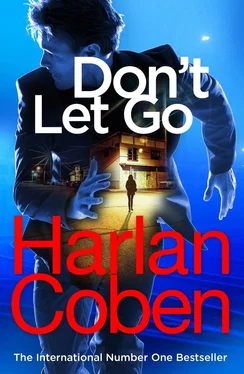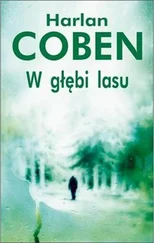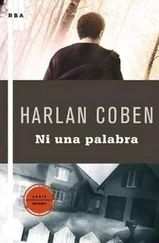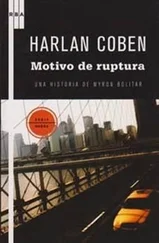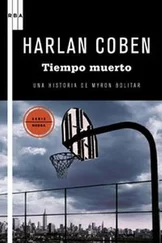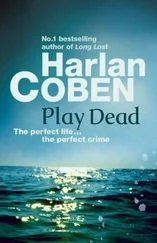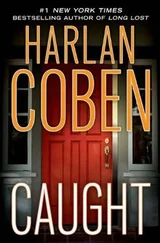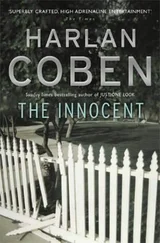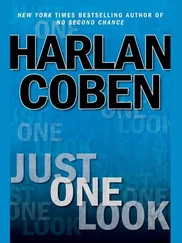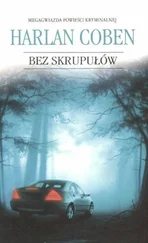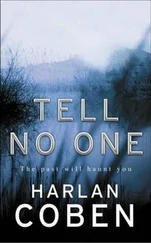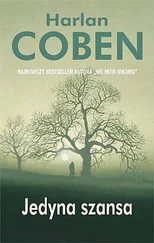“Thank you for telling me yourself,” Tom Stroud says.
Augie manages a nod.
Tom Stroud wipes his face with his sleeve and forces up a smile of some sort. “We have something in common now.”
Augie looks a question at him.
“Well, something horrible,” Tom continues. “We’ve both lost children. I know your pain now. It’s like... it’s like being members of the worst club imaginable.”
Now it is Augie who winces as though absorbing blows.
“Do you think that awful video had something to do with it?” Tom asks.
I wait for Augie to answer, but he seems lost now. I take the question for him.
“They’ll certainly be looking into that,” I say.
“Hank didn’t deserve that. Even if he did expose himself—”
“He didn’t.”
Tom Stroud looks at me.
“It was a lie. A mother didn’t like Hank hanging around the school.”
Tom Stroud’s eyes grow big. I think about those grieving steps again. Denial may be quickly giving way to anger. “She made it up?”
“Yes.”
Nothing in his expression changes, but you can feel his temperature rising. “What’s her name?”
“We can’t tell you that.”
“Do you think she did it?”
“Do I think she killed Hank?”
“Yes.”
I answer honestly. “No.”
“Then who?”
I explain how the investigation has just started and offer the expected “doing all we can” platitudes. I ask him if he has someone he can call to be with him. He does — a brother. Augie barely says a word, hanging by the door, rocking back and forth on his heels. I settle Tom in as best I can, but I’m not a babysitter. Augie and I have been here long enough.
“Thanks again,” Tom Stroud says to us at the door.
Just in case I haven’t uttered enough banalities, I say, “Sorry for your loss.”
Augie heads out first, starting up the walk. I have to hurry to catch up with him.
“What’s up?”
“Nothing.”
“You got awfully quiet in there. I thought maybe you got an update on your phone or something.”
“Nope.”
Augie reaches the car and opens the door. We both get in.
“So what gives?” I ask.
Augie glares through the front windshield at Tom Stroud’s house. “Did you hear what he said to me?”
“You mean Tom Stroud?”
He keeps glaring at that door. “He and I have something in common now.” I see a tremor hit his face. “He knows my pain.”
His voice is thick with disdain. I can hear his breathing thicken and grow labored. I don’t know what to do here, how to play it, so I just wait.
“I lost a beautiful, vibrant seventeen-year-old daughter, a girl with all the promise in the world. She was my everything, Nap. You get that? She was my life.”
He looks at me now, the same glare. I meet his eyes and don’t move.
“I woke Diana up for school in the morning. I made her chocolate-chip pancakes every Wednesday. When she was a little girl, I took her every Saturday morning to the Armstrong Diner, just the two of us, and then we’d go to Silverman’s and buy ponytail holders or neon scrunchies or those tortoiseshell clips for her hair. She collected hair stuff. I was just the clueless dad, what do I know? All of that stuff was still there when I cleaned out her room. Threw them all away. When she had rheumatic fever in seventh grade, I slept in a chair at Saint Barnabas for eight straight nights. I sat in that hospital and watched her and begged God to never hurt her. I went to every field hockey game, every holiday concert, every dance recital, every graduation, every parents’ day. When she went on her first date, I secretly followed them to the movies because I was so nervous. I stayed up every night she went out because I couldn’t fall asleep until I knew she was home safe. I helped her work on college essays no one ended up having to read because she died before she could apply. I loved that girl with all my might every single day of her life, and he” — Augie practically spits the word out toward Tom Stroud’s house — “he thinks now we have something in common? He thinks, what, that he, a man who abandoned his son when things got tough, knows my pain?”
He hits his own chest when he says the word “my.” Then he stops, grows quiet. His eyes close.
A small part of me wants to say something comforting, something along the line that Tom Stroud just lost his son and so we need to cut him a little slack. But most of me gets exactly what Augie means and doesn’t feel the need to be that generous.
When Augie opens his eyes, he stares at the house again. “Maybe we need to look at this in a new way,” he says.
“How’s that?”
“Where was Tom Stroud all those years?”
I stay quiet.
“He claims he was out west,” Augie continues, “opening a fish-and-tackle business.”
“With a gun range in the back,” I add.
Now we both stare at the house.
“He also claims he came back every once in a while. Tried to bond with his kid, who rejected him.”
“So?”
Augie doesn’t answer for a moment. Then he lets loose a long breath and says, “So maybe he came back fifteen years ago.”
“Seems a stretch,” I say.
“It does,” Augie agrees. “But it might be a good idea to check on his whereabouts.”
When I arrive back home, the Walshes are outside. I give them the big Mr. Friendly smile. Look how harmless the single guy is. They wave back.
They all know your tragic story, of course. It’s legend in these parts, as they say. I’m surprised none of Westbridge’s wannabe Springsteens has written the “Ode to Leo and Diana.” Still, they all think that it can’t happen to them. That’s how people are. They all hunger for the details not solely because they are ghoulish — that’s part of it, no question — but more because they need to know that it can’t possibly happen to them. Those teens drank too much. They took drugs. They took foolish chances. Their parents didn’t raise them right. They didn’t watch close enough. Whatever. Can’t happen to us.
Denial isn’t just for the grieving.
I still haven’t heard back from Beth Lashley. That troubles me. I call the Ann Arbor Police Department and locate a detective named Carl Legg. I explain to him that I’m looking for a cardiologist named Beth Fletcher née Lashley and am getting the runaround from her office staff.
“Is she wanted in connection to a crime?” Legg asks me.
“No. I just need to talk to her.”
“I’ll head over to her office myself.”
“Thanks.”
“No worries. I’ll call you when I know more.”
The house is quiet, the ghosts all sleeping. I head up to the second floor and pull the handle. The ladder to the attic comes down. I climb up and try to remember the last time I was up here. I guess I helped bring your stuff to the attic, but if I did, that memory is gone. Maybe Dad spared me and did it himself. Your death was sudden. Dad’s was not. He and I had time. He accepted his fate, even as I denied it. By the time his body gave out, Dad had already unburdened himself and thus me of most of his worldly possessions. He gave away his own clothes. He packed up his room.
He tidied up before the Reaper arrived, so I wouldn’t have to.
The attic, no surprise, is musty and hot. It’s hard to breathe. I expect there to be a ton of boxes and old trunks, all the stuff you see in movies, but there is very little. Dad put down a few planks of wood, that’s it, so that most of the floor is pink insulation. That’s what I remember most. You and I would come up here as kids and we’d play a game of having to stay on the boards because if we stepped on the pink, we would fall right straight through the ceiling and land on the floor below. I don’t know if that’s true, but that’s what Dad always told us. I remember as a kid being scared of that, like the insulation was quicksand, and I would step on it and sink in and be gone forever.
Читать дальше
